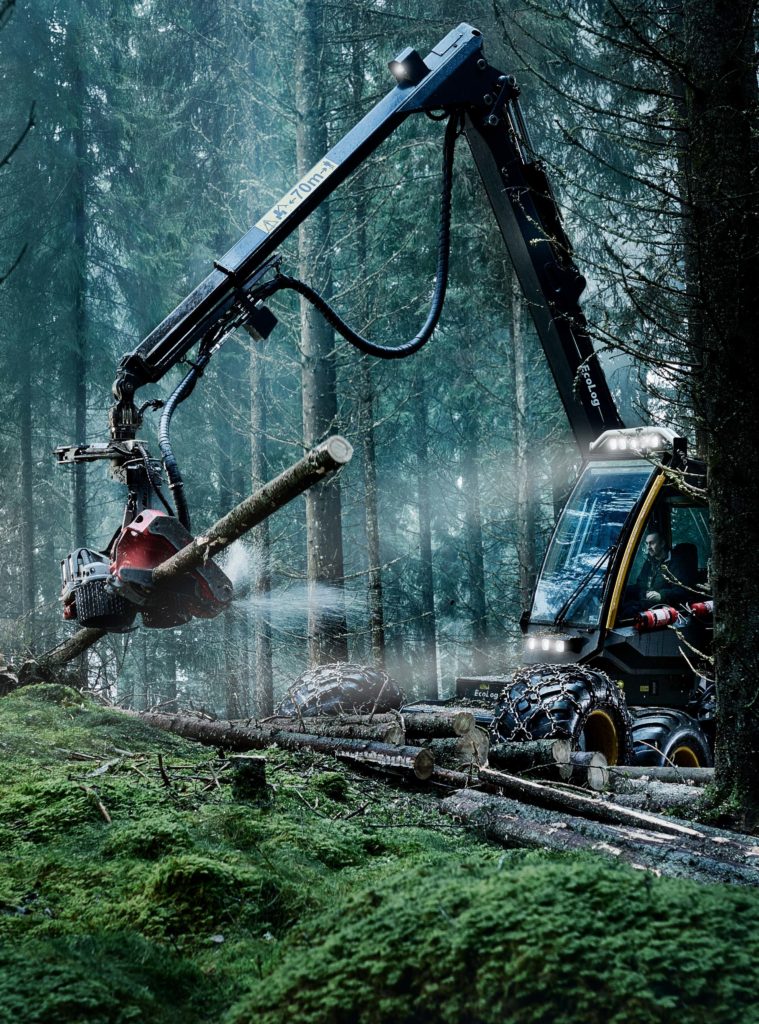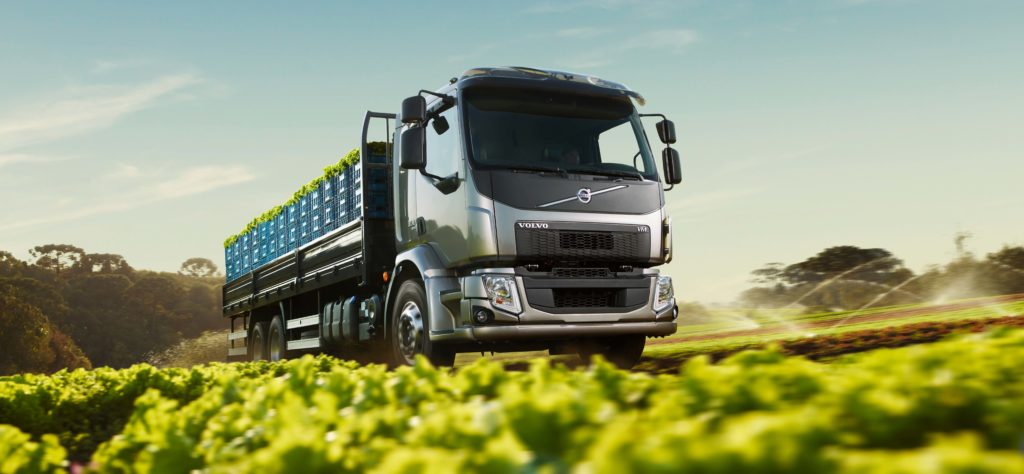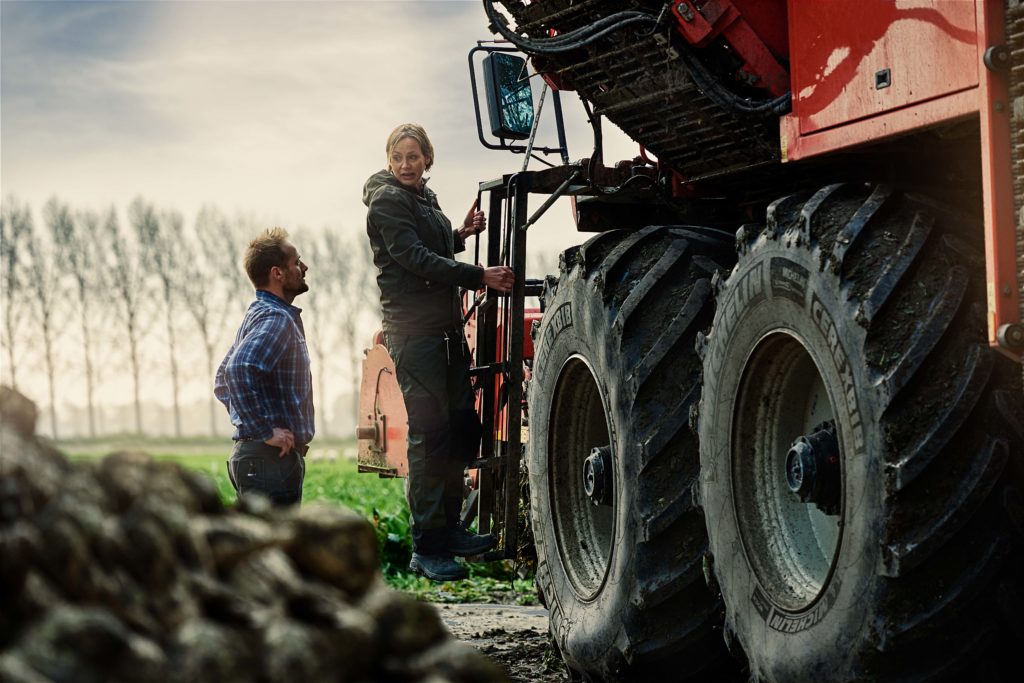Connectivity, electrification and autonomous driving are the three principles that will guide the development of sustainable volvo engines in the different areas in which the group is active, starting from the agricultural one…
by Maria Luisa Doldi
Volvo Penta https://www.volvopenta.com/ has recently announced that, by 2021, electric transmissions will be provided across its whole range. Advances in electric drive technology and increased battery capacity are the basis of these developments: the company used the EIMA exposition, a meeting point for agricultural mechanization, to discuss it with customers and visitors. The Volvo Group (of which Volvo Penta is a part) correctly maintains that the needs of environmental sustainability and the business requirements of customers are increasingly closer, as electrified options become more and more feasible. Taking advantage of the latest technologies for energy storage in batteries and collaborating directly with customers, Volvo Penta will create advantageous solutions for electro-mobility that will also be used in agriculture.
[su_box title=”Automotive and agricultural sector The motors of tomorrow” box_color=”#43634b”] Connectivity, electrification and autonomous driving are the three principles that will guide the development of Volvo engines in sustainable terms. For 2025, for example, Volvo Cars aims at placing one million electrified cars on the road. All new Volvo cars from 2019 will have an electrified component, so they will be hybrid or Full Electric. Ambitious but necessary goals so that climate change can be maintained “well below 2°C increase with respect to pre-industrial levels”, which is, in short, the goal of the Paris Agreement, reiterated during COP 24 in Poland in December. The Volvo Cars electrification strategy, recognized for its commitment and credibility even by the United Nations Conference, will also be applied in the activities of the Volvo Group, for example in the agricultural sector. It is a sector that, more than others, is by nature sensitive to environmental issues. That is also why it is open to solutions that allow greater sustainability: electrification to reduce CO2 emissions; connectivity for greater efficiency in the use of resources; autonomous driving for a better use of labor. All agricultural and industrial Volvo Penta engines are designed on a common platform in terms of electronics and control units. This results in a range with interfaces and structures designed to meet different needs and different standards. The common platform facilitates service and the availability of spare parts. On the whole, the technology developed in the automotive sector will probably also be applied to agricultural and industrial machines, revealing the forms of the near future of this sector: connected, remotely managed and electric.[/su_box]
Connectivity, electrification and autonomous driving are the three principles that will guide the development of Volvo engines in sustainable terms. For 2025, for example, Volvo Cars aims at placing one million electrified cars on the road. All new Volvo cars from 2019 will have an electrified component, so they will be hybrid or Full Electric. Ambitious but necessary goals so that climate change can be maintained “well below 2°C increase with respect to pre-industrial levels”, which is, in short, the goal of the Paris Agreement, reiterated during COP 24 in Poland in December. The Volvo Cars electrification strategy, recognized for its commitment and credibility even by the United Nations Conference, will also be applied in the activities of the Volvo Group, for example in the agricultural sector. It is a sector that, more than others, is by nature sensitive to environmental issues. That is also why it is open to solutions that allow greater sustainability: electrification to reduce CO2 emissions; connectivity for greater efficiency in the use of resources; autonomous driving for a better use of labor. All agricultural and industrial Volvo Penta engines are designed on a common platform in terms of electronics and control units. This results in a range with interfaces and structures designed to meet different needs and different standards. The common platform facilitates service and the availability of spare parts. On the whole, the technology developed in the automotive sector will probably also be applied to agricultural and industrial machines, revealing the forms of the near future of this sector: connected, remotely managed and electric.[/su_box]
The target is electro-mobility
Thanks to the increasingly sophisticated technology of electric propulsion and the evolving capacity of the batteries, in addition to the reliability of the Volvo Group’s platforms, Volvo Penta’s commitment, to provide electrified solutions by 2021, becomes more concrete. The electric propulsion solutions that will fuel the new generation of the company’s products, are tested and made safer by the Volvo Penta engineers. “With the increasing feasibility of electrified options, the needs of environmental sustainability and the business requirements of customers are about to come together”, states Peter Granqvist, Volvo Penta’s Chief Technology Officer. “The individual needs vary from sector to sector (for example construction, extraction and material handling), just as in the case of commercial and pleasure marine applications, but a trend clearly emerges in all sorts of customers: the need for cleaner, quieter and more efficient transmissions”.
[su_box title=”The aim of the Volvo Group Leader in sustainable solutions” box_color=”#43634b”]«We want to become leaders in sustainable solutions in the sectors in which we are active, on land as well as at sea» stated Malin Schwartz, Senior Vice President, Brand, Communication and Marketing Volvo Penta. A 360-degree sustainability, therefore, the one that Volvo pursues, summarized in the Swedish concept of Omtanke, “taking care”: of the environment, of customers and employees, of the company. Is all this compatible with the business today, especially in a world, for example, like the automotive world, where competitiveness is so fierce? The words of Håkan Samuelsson, President and CEO of Volvo Cars have been explanatory in this regard: «Sustainability is no longer just a box to tick, but a key element of the business as well as an opportunity for those companies that correctly interpret the theme». And again: «Our customers want safer, cleaner and more affordable cars. We can meet their expectations, drive change and at the same time promote our Company’s growth». [/su_box]
[/su_box]
Being part of the Volvo Group offers the advantage of being able to access advanced technologies. Volvo Penta is further developing the proven electro-mobility platform that has been successfully used for many years by Volvo buses, the division of the Group devoted to buses. The new electrification workshop of the company is placed in front of the Volvo Group’s electro-mobility premises of about 140 people. The creation of commercially viable industrial electrical solutions has been held back by several factors, namely battery capacity, weight and charging times. However, in the last decade, developments in these fields have led to the proliferation of new battery-powered devices, up to large-scale energy storage systems. “The spread of these battery technologies brings with it an ever-increasing stock of knowledge and skills that benefits all sectors”, states Thulin. “The increase in energy density, together with the reduction in battery size, opens the door to new machine designs. At the same time, the cost reduction is bringing ownership costs to a point where, for different applications, it will be more advantageous to use an electric motor rather than a conventional one. In addition, shorter charging times and greater availability of the related infrastructure at customers warehouses and in other hubs will boost electrification solutions”. For Volvo Penta it is strategic to collaborate with customers in order to evaluate the best options and carry out pilot projects: “It is essential to spend time with customers, both OEMs and operators, to understand what benefits can be gained from electrification, in which way they intend to use machines and equipment and where recharging operations can be integrated”, explains Thulin. “It is only by understanding all the details that we can offer a system perfectly suited to their needs”.




